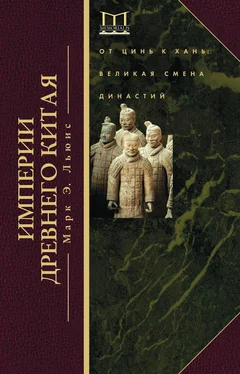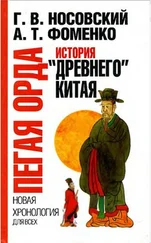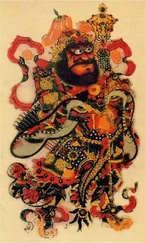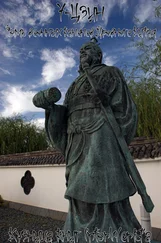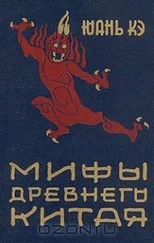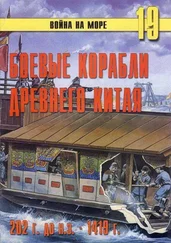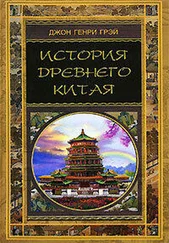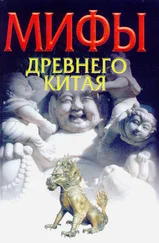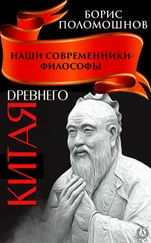Tr. William Boltz. Early China 15 (1990): 71-86.
Li, Xueqin. Eastern Zhou and Qin Civilizations. Tr. К. C. Chang. New Haven: Yale University Press, 1985.
Li Bo ji jiaozhu (Annotated Commentary to the “Collected Poems of Li Bo”). Shanghai: Guji, 1980.
Li He shi ji (Collected Poems of Li He). Beijing: Renmin Wenxue, 1984.
Li ji zhu shu (Commentaries and Subcommentaries to the “Records of Ritual”). In Shisan jing zhu shu (The Thirteen Classics with Commentaries and Subcommentaries), Vol. 5. Taipei: Yiwen, 1976.
Li shi (Elucidation of Clerical Graph Inscriptions). Compiled by Hong Gua. In Shike shiliao congshu (Collecteana of Historical Resources Carved on Stone). Vols. 1—3. Taipei: Yiwen, 1966.
Li xu (Sequel to the Elucidation of Clerical Graph Inscriptions). In Shike shiliao congshu. Vol. 3. Taipei: Yiwen, 1966.
Liang Han jin shi ji (Records on Metal and Stone from the Two Han Dynasties). In Shike shiliao congshu. Vols. 4—5. Taipei: Yiwen, 1966.
Liang Jiang Wentong wenji (Collected Writings of the Two Jiangs). Si bu cong kan ed.
Lie nii zhuan jiao zhu (Annotated Commentary to the “Arrayed Biographies of Women”). Si bu bei yao ed.
Lie xian zhuan (Arrayed Biographies of Immortals). In Zheng tong Dao zang (Daoist Canon from the Zhengtong Reign Period). Shanghai: Shangwu, 1923—1926.
Lim, Lucy, ed. Stories from China's Past: Han Dynasty Pictorial Reliefs and Archaeological Objects from Sichuan Province, Peoples Republic of China. San Francisco: Chinese Culture Foundation, 1987.
Little, Stephen and Shawn, Eichman. Taoism and the Arts of China. Chicago: Art Institute of Chicago, 2000.
Liu, Cary, Michael Nylan and Anthony Barbieri-Low. Recarving China's Past: Art, Archaeology, and Architecture of the “Wu Family Shrines." New Haven: Yale University Press, 2005.
Liu, James J. Y. The Chinese Knight Errant. London: Routledge & Kegan Paul, 1967.
Loewe, Michael. Chinese Ideas of Life and Death: Faith, Myth and Reason in the Han Period. London: George Allen & Unwin, 1982.
–“The Concept of Sovereignty.” In The Cambridge History of
China, Vol. 1: The Ch'in and Han Empires, 221 B.C.—A.D. 220. Cambridge: Cambridge University Press, 1986.
–“The Conduct of Government and the Issues at Stake, A.D.
57—167.” In The Cambridge History of China, Vol. 1: The Ch'in and Han Empires, 221 B.C.—A.D. 220. Cambridge: Cambridge University Press, 1986.
– Divination, Mythology and Monarchy in Han China. Cambridge:
Cambridge University Press, 1994.
–“The Orders of Aristocratic Ranks of Han China.” T'oung Pao
48:1-3 (1960): 97-174.
– Records of Han Administration. 2 vols. Cambridge: Cambridge
University Press, 1967.
–“The Structure and Practice of Government.” In The Cambridge
History of China, Vol. 1: The Ch'in and Han Empires, 221 B.C.—A.D. 220. Cambridge: Cambridge University Press, 1986.
– Ways to Paradise: The Chinese Quest for Immortality. London:
George Allen & Unwin, 1979.
Loewe, Michael, ed. The Cambridge History of China, Vol. 1: The Ch'in and Han Empires, 221 B.C.—A.D. 220. Cambridge: Cambridge University Press, 1986.
Lti, Jia. Xin у и jiaozhu (Annotated Commentary to the “New Words”). Annotated by Wang Liqi. Beijing: Zhonghua, 1986.
Lii shi chun qiu jiao shi (Annotated Elucidation of the “Springs and Autumns of Master Lii”). Annotated by Chen Qiyou. Shanghai: Xuelin, 1984.
Lun yu zheng yi (True Meaning of the “Analects”). In Xin bian zhu zi ji cheng (New Compilation of the Comprehensive Collection of the Various Masters), Vol. i. Taipei: Shijie, 1974.
Ma, Jixing. Mawangdui gu yi shu kaoshi (Critical Elucidation of the Ancient Medical Texts from Mawangdui). Changsha: Hunan Kexue Jishu, 1992.
Major, John. Heaven and Earth in Early Han Thought: Chapters Three, Four, and Five of the Huainanzi. Albany: State University of New York Press, 1993.
–“The Meaning of Hsing-te [Xingde].” In Chinese Ideas about
Nature and Society. Ed. Charles Le Blanc and Susan Blader. Hong Kong: Hong Kong University, 1987.
Makeham, John. Name and Actuality in Early Chinese Thought. Albany: State University of New York Press, 1994.
Mallory, J. P., and Victor Mair. The Tarim Mummies: Ancient China and the Mystery of the Earliest People from the West. London: Thames and Hudson: 2000.
Mao shi zheng yi (The Correct Meaning of the “Mao Commentary to the Odes ”). In Shisan jing zhu shu (The Thirteen Classics with Commentaries and Subcommentaries), Vol. 2. Taipei: Yiwen, 1976.
McKnight, Brian. The Quality of Mercy: Amnesties and Traditional Chinese Justice. Honolulu: University of Hawaii Press, 1981.
McLeod, Katrina, and Robin Yates. “Forms of Ch’in Law.” Harvard Journal of Asiatic Studies 41:1 (1981): 111—163.
Mengzi zheng yi (True Meaning of the “Mencius”). In Xin bian zhu zi ji cheng (New Compilation of the Comprehensive Collection of the Various Masters), Vol. i. Taipei: Shijie, 1974.
Moffett, J. С. P. “Prediction in the Zuo-zhuan.” Ph.D. diss. Edinburgh University, 1991.
Mozi jian gu (Itemized Exegesis on the “Master Mo”). Annotated by Sun Yirang. In Xin bian zhu zi ji cheng (New Compilation of the Comprehensive Collection of the Various Masters), Vol. 6. Taipei: Shijie, 1974.
Nishijima, Sadao. “The Economic and Social History of Former Han.” In The Cambridge History of China, Vol. 1: The Ch4n and Han Empires, 221 B.C. – A.D. 220. Cambridge: Cambridge University Press, 1986.
Norman, Jerry. Chinese. Cambridge: Cambridge University Press, 1988.
Nylan, Michael. “The Chin-wen/Ku-wen Controversy in Han Times.” T’oung Pao 80 (1994): 82-144.
–“Confucian Piety and Individualism in Han China.” Journal of
the American Oriental Society 116:1 (1996): 1—27.
– 77ге fi ve“Confucian” Classics. New Haven: Yale University
Press, 2001.
–“Han Classicists Writing in Dialogue about their Own Tradition.” Philosophy East and West 47:2 (April 1997): 133—188.
–“A Problematic Model: The Han ‘Orthodox Synthesis’ Then
and Now.” In Imagining Boundaries: Changing Confucian Doctrines, Texts, and Hermeneutics. Ed. Chow Kai-wing, Ng On-cho, and John B. Henderson. Albany: State University of New York Press, 1999.
Nylan, Michael, and Nathan Sivin. “The First Neo-Confucianism: An Introduction to Yang Hsiung’s ‘Canon of Supreme Mystery’ (Tai hsuan ching, 4 B.C.).” In Chinese Ideas about Nature and Society: Studies in Honour of Derk Bodde. Hong Kong: Hong Kong University Press, 1987.
Ong, Roberto K. “Image and Meaning: The Hermeneutics of Traditional Dream Interpretation.” In Psycho-Sinology: The Universe of Dreams in Chinese Culture. Ed. Carolyn T. Brown. Lanham, MD: University Press of America, 1988.
– Interpretation of Dreams in Ancient China. Bochum: Studi-
enverlag Brochmeyer, 1985.
Owen, Stephen. The Making of Early Chinese Classical Poetry. Cambridge: Harvard University Press, 2006.
– Remembrances: The Experience of the Past in Classical Literature.
Cambridge: Harvard University Press, 1986.
Читать дальше
Конец ознакомительного отрывка
Купить книгу
